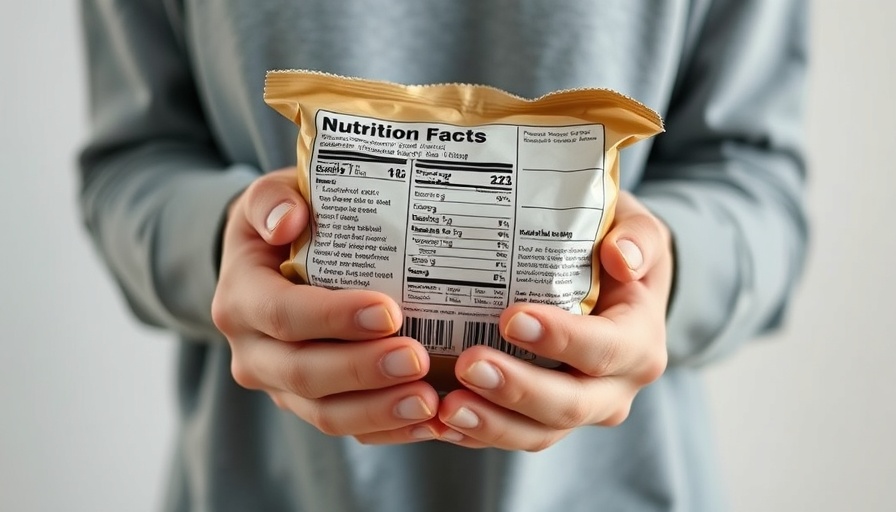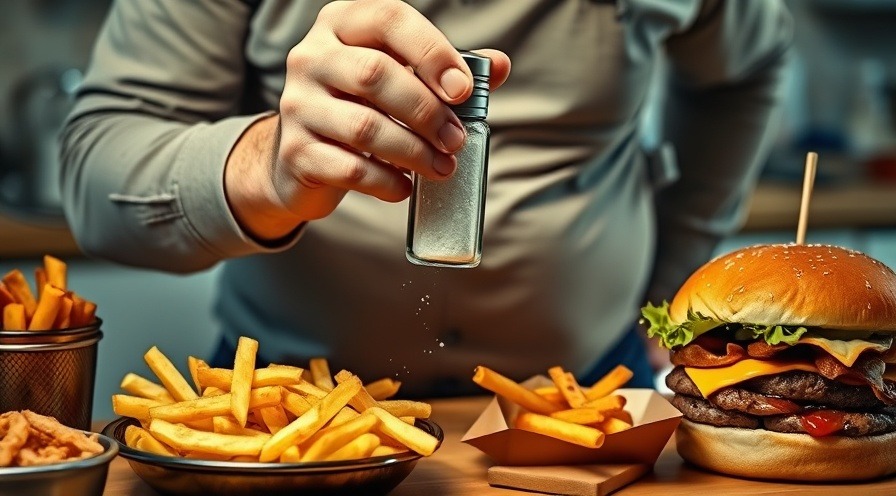
The Hidden Truth About Your Favorite Sugar Substitute: Insulin Spikes and Heart Risks You Need to Know
Hey health-conscious readers! We all try to make smarter choices for our bodies, right? Often, that means reaching for sugar-free options, hoping to cut calories and avoid the downsides of too much sugar. Artificial sweeteners have become ubiquitous, slipping into everything from our morning coffee creamer to our afternoon chewing gum. But what if some of these "healthy" swaps aren't as innocent as they seem?
Recent research is starting to pull back the curtain on the long-term effects of these pervasive ingredients. A significant new study suggests that a popular sugar substitute, found in many everyday products, might be doing more than just sweetening your day – it could be secretly messing with your insulin levels and raising your risk of heart problems over time.
The Study That Raised Red Flags
Published in the journal Cell Metabolism, this research honed in on aspartame, one of the most commonly used artificial sweeteners out there. The findings are particularly striking: the study found that aspartame triggers an increase in insulin levels. Why is this concerning? Well, over time, elevated insulin can contribute to the buildup of fatty plaques in the arteries, a condition known as atherosclerosis. This plaque buildup isn't just cosmetic; it can lead to inflammation, significantly increasing the risk of serious events like heart attacks and strokes.
The researchers tested this in mice, feeding them food containing 0.15% aspartame daily for 12 weeks. This amount is equivalent to what a human would consume by drinking about three cans of diet soda per day – a surprisingly common habit for many. Compared to a control group that didn't get any artificial sweeteners, the mice on the aspartame diet developed larger, more fatty plaques in their arteries and showed higher levels of inflammation. Importantly, researchers also noted an immediate insulin spike the moment aspartame entered the mice's systems.
How Aspartame Might Be Tricking Your Body
So, how does a calorie-free sweetener cause an insulin spike? It turns out that aspartame, which is 200 times sweeter than sugar, might be literally "tricking" your body. It activates sweet taste receptors not just in your mouth, but also in your gut. This activation sends a signal to your pancreas, essentially telling it to get ready for an influx of sugar – even though there's no actual glucose arriving. The result? An insulin surge without any real sugar intake.

Think about it: your body releases insulin to help manage blood sugar. If you're constantly prompting insulin release without the presence of sugar for it to manage, it disrupts this delicate system. Over time, these frequent, unnecessary insulin spikes can contribute to a cascade of metabolic issues, including fat storage, insulin resistance, and potentially more serious metabolic disorders.
The Inflammation Connection: Meet CX3CL1
The study also identified a specific culprit in the inflammation pathway: an immune molecule called CX3CL1. This molecule gets activated when insulin is released in response to aspartame. According to Yihai Cao, a senior author of the study and researcher at Karolinska Institute in Sweden, CX3CL1 plays a key role in inflammation and plaque buildup in arteries.
"Because blood flows rapidly through arteries, most chemicals are quickly washed away," Cao explained. "However, CX3CL1 remains attached to the artery walls, trapping immune cells and fueling inflammation". This persistent attachment could be a significant factor in the long-term damage observed. As Cao highlighted earlier, "Artificial sweeteners have infiltrated nearly all types of food, making it crucial to understand their long-term health effects".
Where Are These Sweeteners Hiding?
Given these findings, it's wise to be aware of where artificial sweeteners commonly lurk. The source lists several examples of products where you might find them, making it clear just how widespread they are:
Diet Sodas (like Coca-Cola Zero, Diet Pepsi, Diet Coke)
Sugar-Free Gum (Orbit, Extra, Trident)
Flavored Yogurt (Dannon Light & Fit, Yoplait Light)
Protein Bars (Quest Bars, Atkins, Pure Protein)
Artificially Sweetened Coffee Creamers (Coffee-mate Sugar-Free, International Delight Sugar-Free)
Sugar-Free Candy (Russell Stover, Werther’s Original Sugar-Free)
Low-Calorie Ice Cream (Halo Top, Arctic Zero, Breyers Carb Smart)
Cough Syrups and Medications (Robitussin Sugar-Free, Halls Sugar-Free)
Flavored Water & Sports Drinks (Vitamin Water Zero, Gatorade Zero, Propel)
Low-Calorie Frozen Meals (Lean Cuisine, Healthy Choice, Smart Ones)
Checking ingredient labels is always a smart move!
Looking for Sweetness Without the Worry? Consider Natural Alternatives
If the thought of unwanted insulin spikes and potential heart risks makes you want to steer clear of artificial sweeteners, don't worry! The sources suggest several natural alternatives that can satisfy your sweet tooth without the same potential downsides highlighted in the study. Here are a few to explore:
Monk Fruit Sweetener: A zero-calorie option that doesn't spike blood sugar.
Stevia (Whole-Leaf, Organic): Natural, calorie-free, and doesn't impact insulin.
Raw Honey: Offers antioxidants, vitamins, and minerals (though it does contain sugar, so use in moderation).
Maple Syrup: Contains minerals like zinc and manganese (also contains sugar).
Allulose: Doesn't raise blood sugar and reportedly tastes similar to sugar.
Date Syrup or Date Sugar: Provides natural fiber and is rich in potassium and magnesium.
Coconut Sugar: Has a lower glycemic index compared to regular sugar (still contains sugar).
These options offer sweetness with potentially added benefits or fewer metabolic disruptions compared to artificial counterparts like aspartame.
Final Thoughts
While artificial sweeteners have been marketed as a guilt-free way to enjoy sweetness, this research adds to the growing body of evidence suggesting they may disrupt insulin regulation and contribute to metabolic issues.
This particular study was conducted in mice, and future research will be needed to confirm these exact findings in humans. However, the mechanism identified – the 'trick' that causes an insulin spike and the subsequent inflammatory response via CX3CL1 – provides a compelling reason for caution.
Rather than solely relying on diet products loaded with artificial sweeteners, exploring natural alternatives like monk fruit, allulose, or stevia could be a wise step for your long-term health and well-being. Making informed choices about what we consume is one of the most powerful tools we have for protecting our heart and metabolic health.
Stay sweet, naturally!
 Add Row
Add Row  Add
Add 




 Add Row
Add Row  Add
Add 

Write A Comment